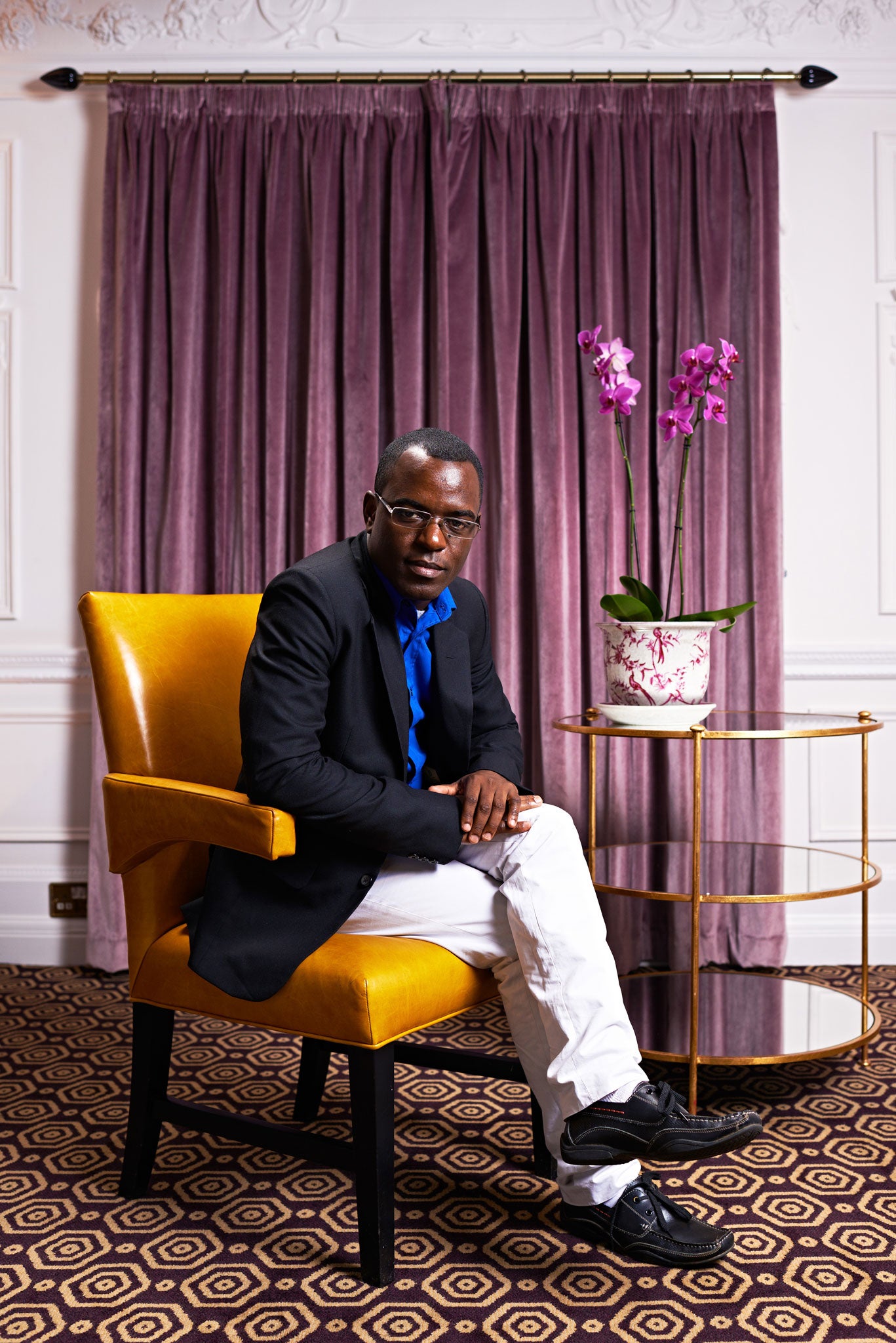Frank Mugisha: Uganda's most outspoken gay rights activist on changing people's attitudes, coming out, and the threat of being attacked

Your support helps us to tell the story
From reproductive rights to climate change to Big Tech, The Independent is on the ground when the story is developing. Whether it's investigating the financials of Elon Musk's pro-Trump PAC or producing our latest documentary, 'The A Word', which shines a light on the American women fighting for reproductive rights, we know how important it is to parse out the facts from the messaging.
At such a critical moment in US history, we need reporters on the ground. Your donation allows us to keep sending journalists to speak to both sides of the story.
The Independent is trusted by Americans across the entire political spectrum. And unlike many other quality news outlets, we choose not to lock Americans out of our reporting and analysis with paywalls. We believe quality journalism should be available to everyone, paid for by those who can afford it.
Your support makes all the difference.You said recently that if you were a gay 13-year-old in Uganda today you probably wouldn't tell anyone. Why have things got worse since the Nineties?
I think it is mainly because of the religious influence and propaganda that is being spread by anti-gay groups. They have used children; they say we are after children to turn them into homosexuals. Ugandans care very much for their children, and they've used that card. It has made it very difficult for us to do anything.
As well as lobbying politically, do you try to change public perceptions?
The problem is I don't have a lot of ground from which to do that. The anti-gay groups have spread propaganda and hatred, so for me it becomes very difficult to approach ordinary Ugandans. But for those I can reach, of course I do. My neighbours, my barber, people who I know will give me an audience, I talk to them and try to change their perception.
Did you consider not coming out?
Some of my family members said, "It's fine, just don't tell other people", which is what happens to many Ugandans. But no, not at any moment. It was a gradual process – I didn't do it at once. Then, just from talking to different people, before I knew it, I found myself in this position.
What kinds of stories do you hear from people who are trying to come to terms with their sexuality?
People come to me for very different reasons. Some people want someone to listen, because people aren't accepting of them. Some people want to know how to come out to friends and family, and some people want to know where to get the courage to stand up in Uganda. Some people have never talked to anyone about their inner feelings. In many cases, they feel that it is bad and they want to commit suicide. They feel like there is no hope for them: their best friends, their family members do not accept them.
What do you say to them?
I tell them about my own struggles and sometimes it turns out that people think they have bigger problems than they actually do. Just sharing what they feel changes their thinking. It's just a conversation: we have a friendly chat and I try to make them my friend and that helps.
Your friend and fellow campaigner David Kato was murdered in 2011. Do you find that you live in fear?
Of course. When David was killed many people were scared, including myself. I really felt petrified thinking about what could happen to me or to someone else. I was so, so worried. Part of it was being paranoid – his death was a mystery.
A court in Uganda has overturned the anti-homosexuality bill. Did that give you hope?
It was a big step. People can no longer be arrested. And although we still have the penal code that criminalises some sex acts, at least my work is now legal. Uganda has been seen as homophobic, but I think that having the law nullified by our own courts, it is very good for the international communities to see that there is legal redress for minority groups in Uganda.
Where do you hope Uganda will be on this issue in 20 years?
I'm a very optimistic person. The encouraging thing is that Ugandans are very nice. It's just a matter of time. We have a very big percentage of young people. Some are indifferent to the things that the religious groups say. We have a very long road to total acceptance but it will come.
Biography
Dr Frank Mugisha is one of the most prominent advocates for LGBT rights in Uganda. Raised in a strict Catholic family in a suburb of Kampala, he came out to his brother, aged 14. He is now the executive director of the umbrella organisation Sexual Minorities Uganda (SMUG) and has been awarded the Robert F Kennedy Human Rights Award and Thorolf Rafto Memorial Prize for his work
Subscribe to Independent Premium to bookmark this article
Want to bookmark your favourite articles and stories to read or reference later? Start your Independent Premium subscription today.
Join our commenting forum
Join thought-provoking conversations, follow other Independent readers and see their replies
Comments